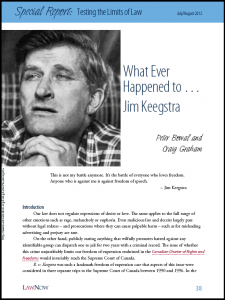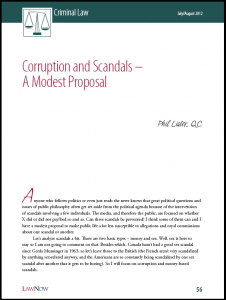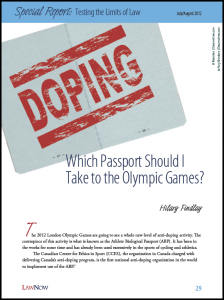LawNow magazine is an incredible resource for teachers. Each issue offers engaging articles about law in language suitable for students. Teachers Talk LawNow is a series of lesson plans for teachers based on these articles.

“R. v. Keegstra was such a landmark freedom of expression case that aspects of this issue were considered in three separate trips to the Supreme Court of Canada between 1990 and 1996.”
This LawNow article is available to download in the July/August 2012 issue of LawNow magazine :
- What Ever Happened to … Jim Keegstra – Peter Bowal and Craig Graham
This weeks blog shifts out of the classroom and into the staff room. Jim Keegstra was a teacher from Eckville, Alberta. For years he had been teaching students his own brand of history that included Jewish conspiracies and other anti-Semitic content. Eventually he was charged with criminally promoting hatred against an identifiable group.
Many recently graduated teachers studied this case in University and older teachers will remember the news coverage. Leave this article on a coffee table in the staff room and see what discussions it creates. Some discussion points to get your started are:
- How could Keegstra teach his opinions for so long and could something like this happen today?
- What limits should there be on “free speech”?
- If Keegstra had kept his opinions out of the classroom, but still made them public, should he have kept his job?


